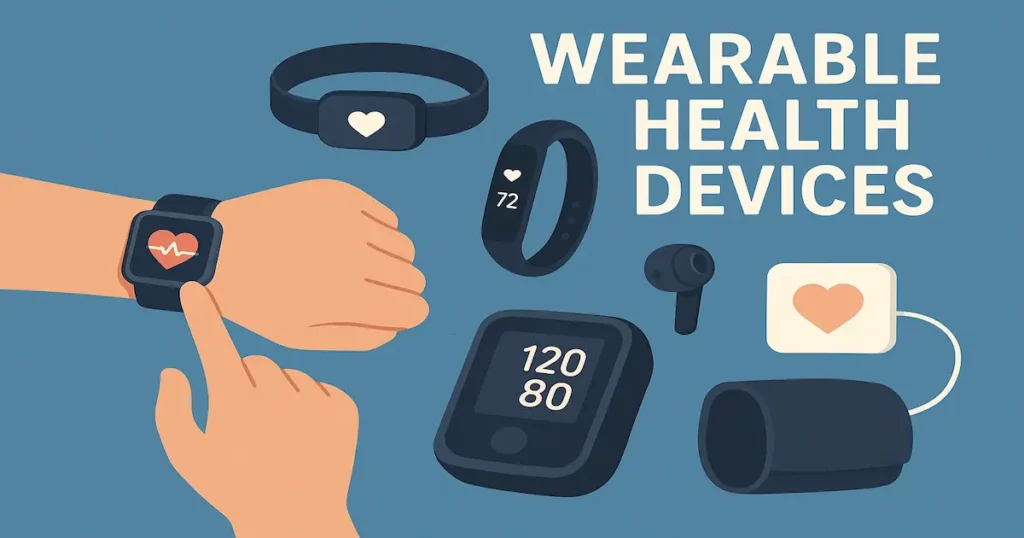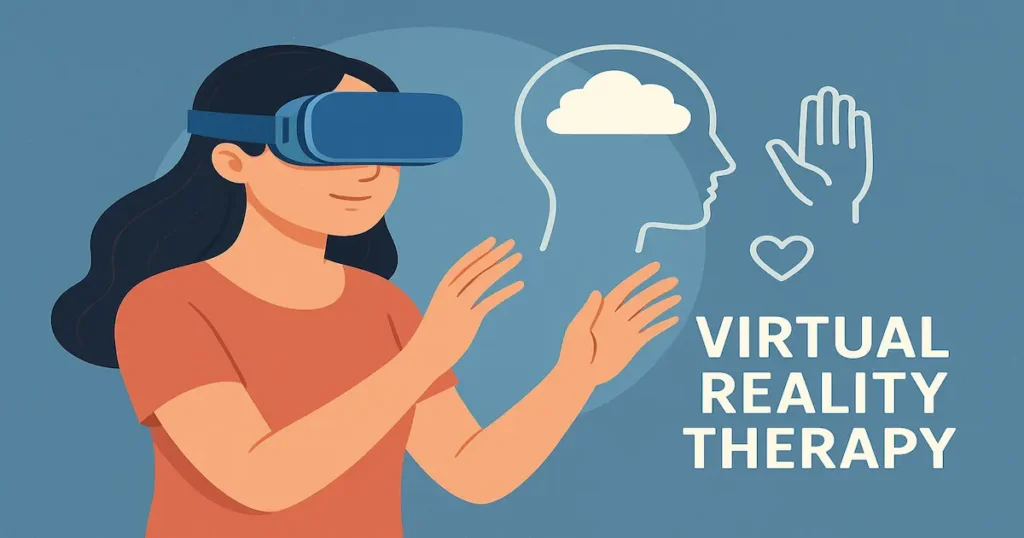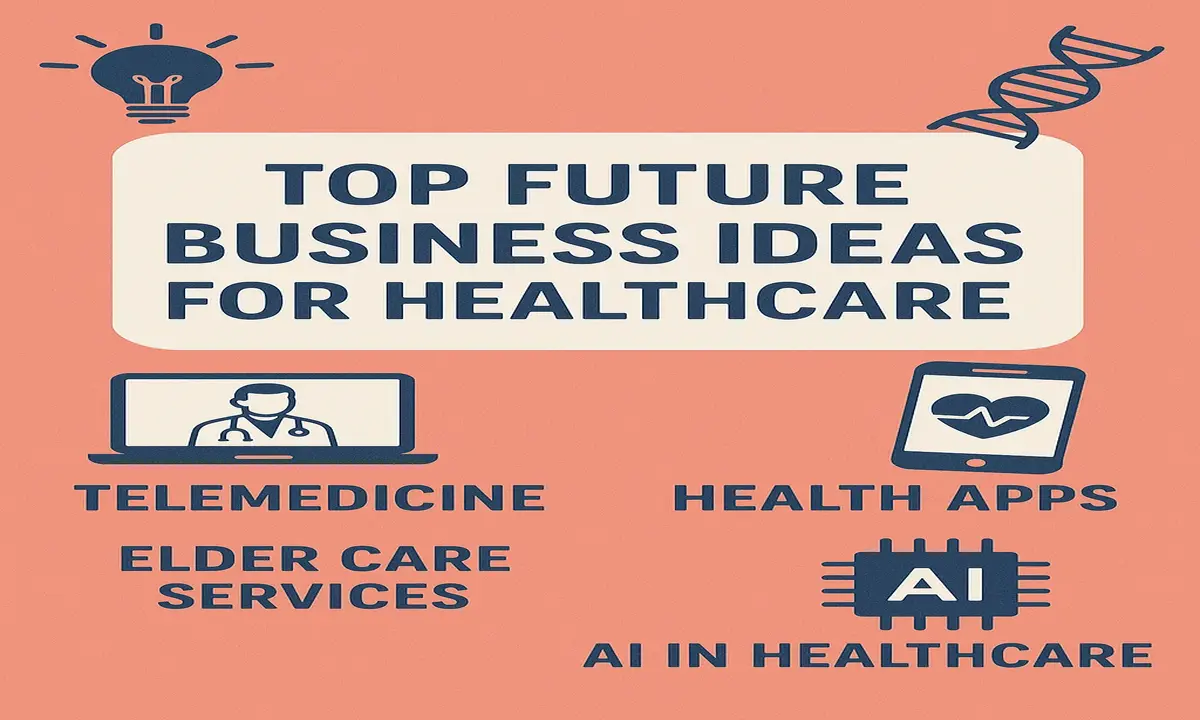Healthcare is evolving at a rapid pace. New technologies and changing patient needs are opening doors for entrepreneurs.
The future of healthcare promises better care, faster solutions, and more accessibility for everyone. This makes it an exciting time to start a business in this field.
Innovative ideas can transform how we approach health and wellness. From virtual doctor visits to smart devices, the possibilities are endless. These business ideas not only solve real problems but also offer great potential for growth and profit.
They cater to a growing demand for convenient, personalized, and tech-driven healthcare solutions. In this article, we’ll dive into the best future business ideas for healthcare. Let’s uncover the trends shaping healthcare’s future.
Telemedicine Platforms
Telemedicine lets patients connect with doctors online. It uses video calls or apps for consultations. This idea is booming because people want fast, easy access to care.
It’s especially helpful for those in rural areas with few clinics. For example, someone can get a diagnosis without traveling far.
Starting a telemedicine platform requires a user-friendly app. You’ll need to hire licensed doctors to provide services. Focus on security to protect patient information, using strong encryption.
Market your platform to busy workers or families in remote places. Telemedicine saves time and makes healthcare reachable for more people.
This business can grow quickly with the right approach. Offer features like appointment scheduling and prescription refills. Partner with insurance companies to make it affordable.
Telemedicine is a game-changer, meeting the demand for convenient care while creating a scalable business model.
AI-Powered Diagnostics
AI diagnostics use technology to spot health issues. It analyzes data like scans, blood tests, or symptoms.
AI can find diseases faster than humans, often with better accuracy. For instance, it might detect early lung cancer in a chest X-ray. This leads to quicker treatment and better outcomes.
To launch an AI diagnostics business, develop software with medical experts. Start with a specific focus, like diabetes detection. Test your tool with hospitals to ensure it’s reliable.
Follow privacy laws like HIPAA to keep patient data safe. AI diagnostics can attract healthcare providers looking for efficiency.
This idea has huge potential as AI improves. It can reduce errors and save lives by catching problems early. You could also offer training for doctors to use your tool. AI diagnostics is a forward-thinking business that aligns with the future of precision medicine.
Read More: S3 Health Benefits Card: A Smart Way to Save on Care
Wearable Health Devices

Wearable devices track health metrics in real time. Think of smartwatches that monitor heart rate or sleep patterns.
They warn users about issues, like a sudden spike in blood pressure. People use them to stay on top of their wellness. For example, a device might alert someone to rest after high stress.
Create a wearable that’s comfortable and stylish. Add useful features, like calorie tracking or hydration reminders.
Work with doctors to ensure the data is accurate. Sell through online stores, fitness centers, or even pharmacies. Wearables empower users to take charge of their health.
This market is growing as people focus on prevention. You can stand out by offering unique features, like mental health tracking.
Build a community around your product with an app for tips and challenges. Wearable health devices are a smart way to tap into the wellness trend.
Personalized Medicine Services
Personalized medicine tailors treatments to a person’s DNA. It uses genetic tests to find the best drugs or therapies. This method is more effective than generic treatments.
For example, a cancer patient might get a drug that targets their specific tumor type. It can lead to faster healing.
Start by offering genetic testing kits for customers. Partner with labs to process the results. Hire specialists to create custom health plans based on the data.
Market to people with chronic conditions, like asthma or arthritis. Personalized medicine meets the demand for precise, individual care.
This business idea is the future of healthcare. It can improve outcomes and reduce side effects. You’ll need to educate patients about the benefits, as it’s still new. Personalized medicine has high growth potential as more people seek tailored health solutions.
Top 10 Future Healthcare Business Ideas with Growth Potential
| Rank | Business Idea | Key Focus Area | Growth Potential 2025–2035 | Example Applications |
|---|---|---|---|---|
| 1 | Telemedicine Platforms | Virtual consultations | Very High | Online doctor visits, mental health therapy |
| 2 | AI Diagnostics | Machine learning in healthcare | Very High | Imaging analysis, early disease detection |
| 3 | Wearable Health Devices | Continuous monitoring | High | Smartwatches, glucose monitors |
| 4 | Genomics & Personalized Medicine | DNA-based treatments | Very High | Tailored cancer therapy, rare disease care |
| 5 | Healthcare Apps | Mobile health management | High | Fitness tracking, medication reminders |
| 6 | Virtual Reality Therapy | Immersive treatment | Medium–High | PTSD, chronic pain, rehab |
| 7 | Robotics in Surgery | Precision operations | High | Minimally invasive surgery, assisted robotics |
| 8 | Elderly Care Solutions | Aging population support | Very High | Smart home sensors, remote caregivers |
| 9 | 3D Printing in Medicine | Custom medical solutions | High | Prosthetics, bioprinting organs |
| 10 | Blockchain Health Records | Data security & sharing | Medium–High | Secure patient history, interoperability |
Mental Health Apps
Mental health apps support users through their phones. They offer tools like guided meditation, mood tracking, or therapist chats.
Demand is rising as more people face stress or anxiety. For instance, an app might help someone calm down with breathing exercises. It’s a discreet, affordable way to get help.
Develop an app with input from licensed therapists. Include features like daily affirmations or emergency support. Use strong security to protect user privacy.
Promote it on social media, targeting young adults who often seek digital solutions. Mental health apps fill a growing gap in care.
This business can make a real difference. You can add subscriptions for premium features, like live therapy sessions. Focus on user-friendly design to keep people coming back. Mental health apps are a meaningful way to support wellness in a tech-driven world.
Also Visit: Ztec100.com: Your Tech Gateway to Health & Insurance
Home Healthcare Services
Home healthcare sends professionals to patients’ homes. It includes services like nursing, physical therapy, or daily care.
This is ideal for the elderly or those recovering from surgery. People prefer healing at home instead of in hospitals. For example, a nurse can help with mobility exercises.
Launch this business by hiring skilled nurses and caregivers. Build a system for scheduling home visits. Ensure safety with thorough staff background checks.
Advertise to families with aging relatives or those needing post-surgery care. Home healthcare offers comfort and convenience.
This idea meets a rising need as populations age. You can expand by offering specialized care, like dementia support. Focus on building trust with families through reliable service. Home healthcare is a compassionate business with steady demand.
Virtual Reality Therapy

Virtual reality (VR) therapy uses headsets for mental health treatment. It helps with issues like phobias, PTSD, or chronic pain.
Patients face fears in a controlled virtual setting. For example, someone afraid of flying can “board” a virtual plane. VR makes therapy immersive and effective.
Create VR programs with mental health professionals. Start with one area, like fear of public speaking. Test your product with clinics to ensure it works well. Market to therapists or hospitals looking for new tools. VR therapy offers a fresh approach to healing.
This business idea is cutting-edge. It can grow as VR technology gets cheaper. Offer training for therapists to use your system. VR therapy appeals to patients who want engaging, modern treatment options, making it a promising venture.
Healthcare Data Analytics
Healthcare data analytics uses patient info to improve services. It finds patterns, like a rise in infections in a city.
Hospitals use this to prepare better, like stocking more supplies. For example, analytics can show which surgeries have the best success rates. It helps doctors make smarter choices.
Start a company that gathers and analyzes health data. Partner with hospitals to access their records securely. Use AI to create detailed reports on trends. Follow strict privacy laws to maintain trust. Healthcare analytics helps providers improve care while cutting costs.
This business has big potential as data becomes more valuable. You can offer insights to clinics, insurers, or even governments. Focus on accuracy and clear reporting to stand out. Healthcare data analytics is a smart way to drive better health outcomes.
Robotic Surgery Systems
Robotic surgery uses machines for precise operations. Surgeons guide robots to perform tasks with high accuracy. This reduces mistakes and helps patients recover faster.
For instance, a robot can do a knee surgery with smaller cuts. It means less pain and quicker healing.
Develop robotic systems with feedback from surgeons. Focus on a specific procedure, like prostate surgery. Test with medical centers to ensure safety and effectiveness. S
ell to hospitals aiming to upgrade their technology. Robotic surgery is a high-demand field with life-changing impact.
This idea is the future of surgery. It can attract top hospitals looking to improve patient care. Offer training for surgeons to use your system. Robotic surgery systems are a high-investment, high-reward business for healthcare innovators.
Elderly Care Tech Solutions
Elderly care tech helps seniors stay independent. Devices like fall sensors or medication reminders make life safer. For example, a smart camera can alert family if a senior falls. This tech reduces worry for caregivers. It lets seniors live at home longer.
Create simple, senior-friendly products, like wearable emergency buttons. Ensure they’re easy to use with clear instructions.
Partner with retirement communities to test your devices. Market to families or caregivers looking for peace of mind. Elderly care tech meets a growing need.
This business can grow as the elderly population increases. Add features like health monitoring or virtual check-ins with doctors. Focus on affordability to reach more people. Elderly care tech solutions are a caring, profitable way to support aging adults.
Mobile Health Clinics
Mobile health clinics bring care to underserved areas. These are vans equipped with medical tools for checkups or tests. They serve communities with limited access to hospitals. For example, a mobile clinic can offer flu shots in a rural village. It makes healthcare reachable.
Start by outfitting a van with basic medical equipment. Hire nurses and doctors to staff it. Partner with local governments or charities to find areas in need. Promote your services through community events. Mobile health clinics bridge gaps in healthcare access.
This idea helps people while building a sustainable business. You can expand to offer dental or vision care. Focus on building trust with the communities you serve. Mobile health clinics are a practical way to make a difference in healthcare.
Health Education Platforms
Health education platforms teach people about wellness online. They offer courses on topics like nutrition or managing diabetes.
These platforms use videos, quizzes, or live sessions. For example, a course might teach how to lower blood pressure naturally. It empowers people to take control of their health.
Build a platform with content from health experts. Include interactive tools, like meal planners or fitness trackers. Offer free basic courses and charge for advanced ones.
Market to schools, workplaces, or individuals. Health education platforms meet the demand for knowledge.
This business can grow by adding more topics, like mental health. Partner with doctors to ensure accuracy. Focus on user engagement with easy, fun lessons. Health education platforms are a smart way to promote wellness while building a loyal audience.
Conclusion
The healthcare industry is full of opportunities for forward-thinking entrepreneurs.
The ideas we’ve explored, from telemedicine to health education platforms, show how innovation can meet growing needs. Each business idea offers a way to improve lives while building a profitable venture.
Starting a healthcare business takes planning and passion. Focus on solving real problems, like access to care or better diagnostics.
Use technology to create solutions that are efficient, safe, and user-friendly. With the right approach, you can make a lasting impact in this evolving field.
Now is the time to act on these trends. Healthcare will keep changing, and those who adapt will thrive. Pick an idea that excites you, research your market, and take the first step. The future of healthcare is bright, and your business could be part of it.
FAQs
Why is telemedicine a smart business choice?
Telemedicine provides easy doctor access online. It’s convenient for patients and reaches remote areas. The demand for virtual care makes it a growing market.
How does AI diagnostics benefit healthcare?
AI diagnostics finds diseases quickly and accurately. It analyzes data like scans to catch issues early. This improves patient outcomes and saves time for doctors.
What makes wearable devices a good idea?
Wearables track health stats like heart rate in real time. They help users stay proactive about wellness. Their popularity grows as people focus on prevention.
Why is personalized medicine effective?
Personalized medicine uses DNA for custom treatments. It’s more precise than standard care, improving results. Patients heal faster with fewer side effects.
How do mental health apps support users?
Mental health apps offer tools like meditation or therapy chats. They provide affordable, private help for stress. They meet a rising need for mental wellness.












